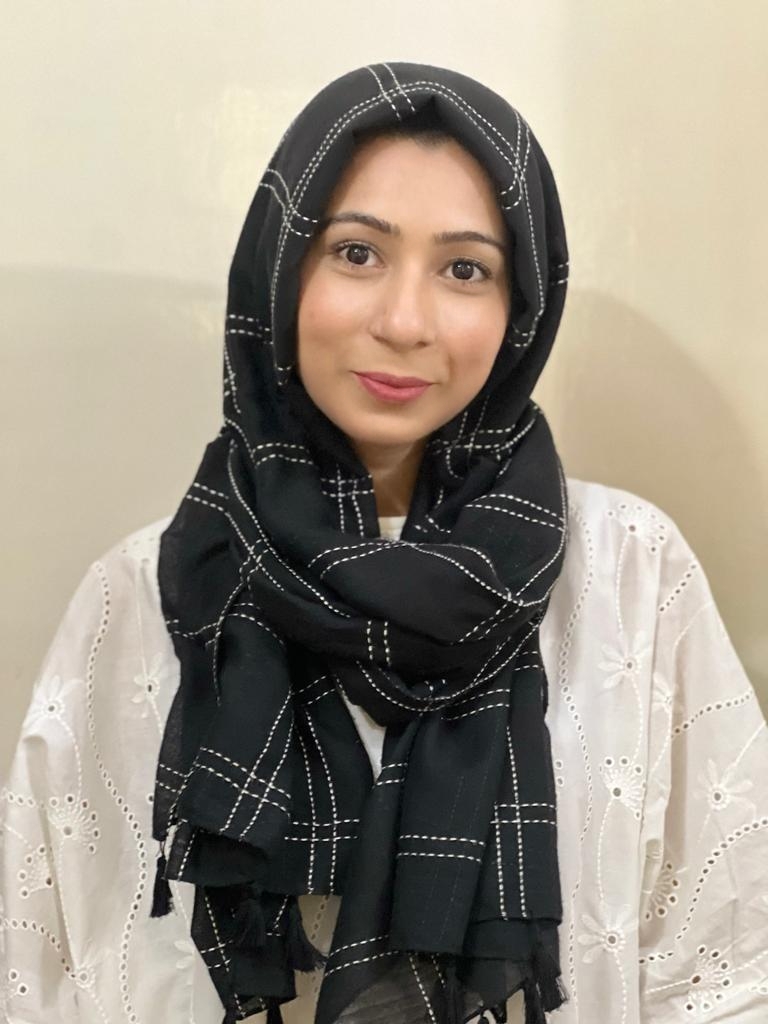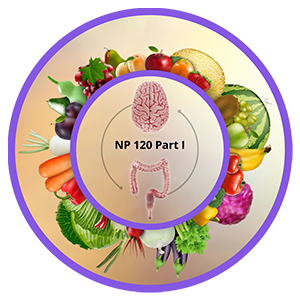










NP 120 Part I
Microbiome and Mental Health
An Evolutionary Journey into the World of the Microbiota Gut-Brain Axis and the DMHR
"I was impressed by the level of detail and supporting material provided. Content was interesting and relevant to my field (mental health). Pithy and important content, which I will have to review multiple times, as many terms were new to me." Mar 2024
Course Overview
Nearly 2,500 years ago, Hippocrates, the father of medicine, proclaimed that “All disease begins in the gut.” These wise words still ring true centuries later, and their significance deepens to include our understanding of how we think, feel, and experience. You see, our gut is not just a mere food processor. It is home to trillions of microorganisms, collectively known as the microbiota. These tiny organisms communicate with one another and our bodies through intricate interactions, profoundly affecting our digestive, immune, and nervous systems.
But what does this have to do with our psychological well-being, brain function, and mental health? Recent research has uncovered a fascinating link between the microbiota, the gut, and the brain, also known as the microbiota-gut-brain axis (MGBA). This means that the state of our gut health can impact our mental health!
In this learning journey, we pose questions, present evidence, and impart knowledge. We do this with a vision that alludes to the infinite potential explanations for how our microbiota-gut-brain axis (MGBA) and diet-mental health relationship (DMHR) interconnect.
This two-part course introduces the first evidence-based conceptual model linking the microbiota-gut-brain axis to the diet-mental health relationship. This “Microbiota Gut-Brain Axis Diet-Mental Health Relationship” is just one of the mechanisms within the emerging field of Nutritional Psychology. So, whether you are a healthcare professional, a scientist, or simply someone interested in the fascinating world of the gut-brain connection, this course is for you. It’s a journey that promises to be exciting, enlightening, and even transformative! See the NP 120 Part I Course Flyer here.
Are you ready to take your first step into the intriguing world of the microbiota-gut-brain axis and discover how it can shape your mental health and well-being? May your gut feeling guide your well-being. Let’s get started!











NP 120 Part I
Microbiome and Mental Health
Course Introduction
Welcome to NP 120 Part I, Microbes in Our Gut: An Evolutionary Journey into the World of the Microbiota-Gut-Brain Axis. In this course, we take you on an incredible journey into the hidden world of the gut microbes living inside our bodies. As you will soon discover, these microbes are very busy influencing how we think, feel, and experience. This happens not only in our daily life but throughout our entire lifespan!
Our microbes express their presence through communicating with (and directing) many of our body’s systems beyond our gastrointestinal system, including our immune system, nervous system, endocrine system, and even our brain!
This communication plays an influential role in our diet-mental health relationship (DMHR) and within the field of nutritional psychology.
But while these microbiota give orders to many systems within our body and mind, who (or what) is giving them orders? It turns out that the foods we eat provide specific instructions to our microbiota —telling them how to act and what to do next. Herein lies the critical interconnection between diet, the MGBA, and the DMHR!
While learning about these complex systems usually requires enrolling in a specialized degree program, we believe this study area should be central to the behavioral and nutrition sciences. Our team has spent two years developing this continuing education course, including reviewing over a thousand research studies, writing, creating, refining, editing, and continually expanding our knowledge to bring this substantial learning experience to you.
We’ve worked hard to explain MGBA-DMHR concepts and develop the illustrations in a way that makes this complex information accessible to anyone with an interest in this area of study. We feel confident that by the time you’ve finished NP 120 Parts I & II, you’ll have had a front-row seat to the microbiota-gut-brain axis and diet-mental health relationship (MGBA-DMHR). But for now, like the old adage says, “You must walk before you can run.” So let’s begin our journey in NP 120 part I by developing our understanding of the microbiota-gut-brain axis side of the equation.











NP 120 Part I
Microbiome and Mental Health
Course Information
Example Learning Objectives
Upon completing this course, learners will begin to understand, from an evidence-based perspective, how MGBA interconnects with the DMHR within nutritional psychology. Upon successfully completing this course, learners will be equipped to enroll in NP 120 Part II to explore the evidence-based MGBA-DMHR conceptual model presented in NP 120 Part II. This knowledge is foundational for understanding the role of diet and nutrients in all aspects of psychological, cognitive, and behavioral functioning and mental health. Upon successful completion of this course, learners will be able to:


-
- Identify three major components of the Microbiota-Gut-Brain Axis (MGBA)
- State two primary research methods used in MGBA research
- Describe three major factors influencing gut microbiota composition and diversity throughout the lifespan
- List three major functions of the gut barrier
- Define eubiosis, gut dysbiosis, and intestinal permeability
- List two components in ‘top-down’ (brain-to-gut) signaling and explain their significance in MGBA communication
- Define microbiota-derived metabolites and explain their role in MGBA communication
- State the fastest and most direct communication route in MGBA communication
- Identify two types of neuro-immuno-endocrine signaling mechanisms (NIEMs) within MGBA communication
- Describe one potential therapeutic intervention targeting the Microbiota gut-brain axis (MGBA)
This course builds upon the nutritional psychology foundation established in NP 110, including all the terms, language, concepts, and methods in nutritional psychology. While NP 110 is not a prerequisite for this course, having taken it will give you familiarity with the structure and terminology we’ll cover in this course.
Logistics
NP 120 Part I is fully online, self-paced, and composed predominantly of text, diagrams & illustrations, and voiced PowerPoint presentations. This course provides 18.25 hours of continuing education credit (CE/CPE) for licensed professionals (1 continuing education credit corresponds to 1 hour of instruction). Together with NP 120 Part II, this course includes over 445 professionally-illustrated figures, 22 voiced powerpoints, 218 Lightbulb Moments (short evidence-based factoids), and a short animated video to enhance learning. Once enrolled, you have full online access to this course for four months (120 days from enrollment). This course is fully self-contained, and no additional materials are needed to complete this course. The course must be completed in its entirety to receive credit (no partial credit is given). See the course flyer for more details.
While the course may not be downloaded, learners are provided supplemental materials called Module Download Kits. These kits contain terms & definitions, all course figures, lightbulb moments (short evidence-based factoids), and full references in APA format. NP 120 Part I has four modules, a syllabus, four quizzes, one final exam, and a course evaluation. Estimated completion times for each (based on average course reader times) are:


The total course duration is 18.25 hrs. The pace with which you complete this course will depend on your own reading, comprehension, and learning style. Some learners like to skim, and some like to delve. Depending on your learner type, your time to complete each course component will slightly differ from these calculated estimates.
Who is this course for?
Prerequisites
There are no prerequisites to take NP 120 Part I. Those who have completed NP 110: Introduction to Nutritional Psychology Methods, however, will have knowledge of the language, concepts, and methods related to the diet-mental health relationship and nutritional psychology. NP 120 Part I is a prerequisite for NP 120 Part II. Additionally, to receive the Introductory Certificate in Nutritional Psychology, one must have successfully completed NP 110, NP 120 (Parts I & II), and NP 150.
Scope of Practice
This course presents evidence, knowledge, and conceptual learning (psychonutritional education) in how MGBA (and diet) influence all aspects of the diet-mental health relationship within nutritional psychology. This course is not designed to provide diagnosis, nutritional, or therapeutic intervention outside of one’s existing professional scope of practice. This course does not provide the following:
- Guidelines for incorporating assessment, diagnosis, or intervention into clinical practice
- Materials for dietary recommendations or nutritional/mental health interventions
- A method for weight loss or weight control, or a “cure” for mental health disorders
- A license to practice nutritional or psychological interventions or provide medical advice
This course does provide the following:
- Proficiency in analyzing and interpreting MGBA-DMHR research, enabling critical thinking and evidence-based decision-making
- The skills to effectively communicate and educate others about the psychonutritional aspects of the MGBA-DMHR, empowering individuals to make informed dietary choices to support mental health
- Awareness of the factors influencing the MGBA-DMHR, including lifestyle, stress, and environment
- Knowledge of emerging research and advancements in microbiota-based interventions, including probiotics, prebiotics, and fecal microbiota transplantation, providing insights into innovative mental health treatment and prevention approaches
- The opportunity to network and collaborate with experts, researchers, and professionals in the study of MGBA-DMHR, facilitating interdisciplinary dialogue and the exchange of ideas
Q&A
NP 120 Part I Course Q&A's
A: Yes, this course is taught fully online through the CNP website and can be completed at your own pace.
A: Yes, NP 120 has open enrollment, and you can begin any time.
A: NP 120 Part I is estimated to take 18.25 hours to complete, depending on your learning style and previous experience in nutrition and psychology and whether you've taken NP 110. If this information is new to you, or you are a deep learner, it may take more time to complete.
Proper NP 120 citation format: Author(s) (last name, first initial). (Year retrieved). Module Number: Module Title; Section Title (e.g., Module 1: The Microbiota-Gut-Brain Axis. In (Ed.), Course title. Publishing organization. Web address.
Example:
Behairy, S., Pervaiz, N., Soliman, Y. (2023). Module 4: Communication pathways in the MGBA-DMHR. In E. Lu (Ed.), NP 120 Part I: Microbes in our gut: An evolutionary journey into the MGBA-DMHR. The Center for Nutritional Psychology. https://www.nutritional-psychology.org/np110/
A: Yes, a brief description of nutritional psychology is published in: Elsner, F., Matthiessen, L. E., Średnicka-Tober, D., Marx, W., O'Neil, A., Welch, A. A., Hayhoe, R. P., Higgs, S., van Vliet, M., Morphew-Lu, E., Kazimierczak, R., Góralska-Walczak, R., Kopczyńska, K., Steenbuch Krabbe Bruun, T., Rosane, B. P., Gjedsted Bügel, S., & Strassner, C. (2022). Identifying future study designs for mental health and social wellbeing associated with diets of a cohort living in eco-regions: Findings from the INSUM expert workshop. International journal of environmental research and public health, 20(1), 669. https://doi.org/10.3390/ijerph20010669











NP 120 Part I
Microbiome and Mental Health
Module Overviews
In this learning journey, we pose questions, present evidence, and impart knowledge. We do this with a vision that alludes to the infinite potential explanations for how our microbiota gut-brain axis (MGBA) and diet-mental health relationship (DMHR) interconnect.
This two-part course introduces the first evidence-based conceptual model linking the microbiota gut-brain axis to the diet-mental health relationship.
Module 1: Introduction to the Microbiota-Gut-Brain Axis and the DMHR
M1 focuses on the fascinating journey of discovery and development surrounding the gut-brain axis and microbiota. We will focus on unraveling the intricate communication systems within the Microbiota-Gut-Brain Axis (MGBA), tracing its historical evolution, and examining the research approaches that have played a pivotal role in uncovering its existence and significance.
Module 2: The Gut Microbiota
M2 takes an in-depth look at the gut microbiota. We will explore its composition, diversity, and the factors influencing its development and stability. Through this module, we will gain insights into the crucial role of gut microbiota in maintaining a healthy gut environment and its impact on overall health.
Module 3: The Gut Microbiota
M3 focuses on the gut barrier and gastrointestinal homeostasis. We will examine the structure and function of the gut barrier, exploring how it acts as a defense mechanism against harmful pathogens while allowing the absorption of essential nutrients. Additionally, we will discuss the concept of gut permeability, gut dysbiosis, and eubiosis, along with investigating the role of the gut barrier in MGBA.
Module 4: MGBA anatomy, communication pathways, and signaling molecules
M4 delves into the mechanics of microbiota-gut-brain axis (MGBA) communication pathways, facilitating bidirectional signaling between the gut and the brain. We shed light on the bottom-up (gut-to-brain) and top-down (brain-to-gut) communication processes, along with the associated systems and pathways involved in this bidirectional communication mechanism. These pathways include the neural route, such as the autonomic nervous system, vagus nerve, and enteric nervous system; the neuroendocrine route involving hormones and signaling molecules (such as microbial metabolites, neurotransmitters, and neuropeptides), as well as the immune route involving interaction between the gut microbiota or its metabolites with the immune cells.






Microbiome and Mental Health











MODULE TABLE OF CONTENTS






Microbiome and Mental Health
Module 1: Introduction to Microbiota-Gut Brain Axis
Module 1 focuses on the fascinating journey of discovery and development surrounding the gut-brain axis and microbiota. We will focus on unraveling the intricate communication systems within the Microbiota-Gut-Brain Axis (MGBA), tracing its historical evolution, and examining the research approaches that have played a pivotal role in uncovering its existence and significance.
Estimated time to complete:
5.0 hours
Module Quiz
15 questions/15 min
Overview
Terms and Definitions
- Key Notes
Introduction
Major Communication Systems within the MGBA-DMHR
- Gastrointestinal System
- Nervous system
- Central Nervous System (CNS)
- Peripheral Nervous System (PNS) (video)
- Autonomic Nervous System
- Neuroendocrine System
- Enteric Nervous System (ENS) (The Intestinal Nervous System)
- Vagus Nerve
- Microbiota
- The Immune System
Microbiota Gut-Brain Axis Historical Development
Research Methods in the Discovery and Establishment of the MGBA
- The Germ-Free (GF) Model
- Gnotobiotic Mice
- Antibiotic-Induced Microbiota Depletion (AIMD) (video)
- Fecal Microbiota Transplant (FMT)
- Neuroimaging Studies
- Magnetic resonance imaging (MRI)
- Positron emission tomography (PET)
- Magnetic Resonance spectroscopy (MRS)
- Probiotics, Prebiotics, and Synbiotics (video)
- Vagotomy
Conclusion
Quiz
Module references available











MODULE TABLE OF CONTENTS






Microbiome and Mental Health
Module 2: The Gut Microbiota
Module 2 takes an in-depth look at the gut microbiota. We will explore its composition, diversity, and the factors influencing its development and stability. Through this module, we will gain insights into the crucial role of gut microbiota in maintaining a healthy gut environment and its impact on overall health.
Estimated time to complete:
2.5 hours
Module Quiz
19 questions/15 min
Overview
Terms and Definitions
Microbiome: A broader concept
Microbiota: The Invisible Universe in the Gut
Characterization of Microbes in the Gut (video)
- Composition and diversity
- Quantity and distribution
- Temporal variation
- Commensal vs. pathogenic
The Evolution of Gut Microbiota
Factors Influencing Gut Microbiota Diversity and Composition
- Gut microbiota variations within individuals (Intra-individual variations)
- Intestine anatomical locations
- Age
- Antibiotic exposure and medications
- Sleep and circadian rhythm
- Stress (video)
- Gut microbiota variations between individuals (Inter-individual variations)
- Enterotypes
- Gestational age at birth
- Mode of delivery
- Infant feeding method
- Dietary habits
- Exercise Frequency and Physical Activity (video)
- Environmental toxins
- Heavy metals
- Pesticides
- Artificial sweeteners
- Bisphenol A (BPA)
- Phthalates
- Persistent Organic Pollutants (POPs)
- Ethnic, cultural, and geographical variations
Conclusion
Module Quiz
Module references available











MODULE TABLE OF CONTENTS






Microbiome and Mental Health
Module 3: The Gut Barrier and Gastrointestinal Homeostasis
Module 3 focuses on the gut barrier and gastrointestinal homeostasis. We examine the structure and function of the gut barrier, exploring how it acts as a defense mechanism against harmful pathogens while allowing the absorption of essential nutrients. Additionally, we will discuss the concepts of gut permeability, gut dysbiosis, and eubiosis, along with investigating the role of the gut barrier in MGBA.
Estimated time to complete:
3.5 hours
Module Quiz
15 questions/15 min
Overview
Terms and Definitions
Introduction
The gastrointestinal tract (GIT) and its barrier system
- The gut barrier (video)
- Primary Functions of gut barrier
- Protective barrier
- Immune function
- Digestion
- Primary Functions of gut barrier
Anatomy of the Gut Barrier
- External mucus layer
- Intestinal epithelial layer
- Cellular Components of IE Layer
-
- Goblet cells
- Paneth cells
- Endocrine cells
- Microfold cells (M cells)
- Enterocytes
- Transcellular route
- Paracellular route
- Lamina propria layer
Gastrointestinal Homeostasis (video)
Dysbiosis and Increased Intestinal Permeability (video)
- Bacterial Translocation
Gut Barrier Integrity & Diet
- Influence of dietary carbohydrates (high-sugar) on gut barrier
- Influence of dietary fats (high-fat diet) on intestinal barrier functions
Intestinal Barrier Link with Microbiota Gut-Brain Axis (MGBA)
- Gut-brain communication via direct pathway (i.e., vagus nerve)
- Gut-brain communication via indirect pathway (i.e., biochemical via signaling molecules)
- Gut Barrier Integrity and Psychological Functioning
- Stress and Intestinal Permeability
- Disruption of the natural stress response system (Hypothalamic-Pituitary-Adrenal axis)
Conclusion
Module Quiz
Module references available











MODULE TABLE OF CONTENTS






Microbiome and Mental Health
Module 4: MGBA anatomy, Communication Pathways, and Signaling Molecules
Module 4 delves into the various communication pathways facilitating bidirectional signaling between the gut and the brain. We shed light on the pathways influencing gut-brain communication by discovering the neural pathways, such as the autonomic nervous system, vagus nerve, and enteric nervous system, endocrine pathways involving hormones and signaling molecules (neurotransmitters, neuropeptides), as well as the immune pathway involving interaction between the gut microbiota and the immune system.
Estimated time to complete:
4.0 hours
Module Quiz
17 questions/15 min
Overview
Terms and Definitions
Introduction
Basic MGBA Anatomy & Terminologies (video)
- Enteroendocrine cells (EECs)
- Enterochromaffin cells (ECs)
- Goblet cells
- Receptors
- Ligands
The Microbiota Gut-Brain Axis (MGBA): Bidirectional Communication System
- Bottom-up communication processes (gut-to-brain signaling)
- Top-down communication processes (brain-to-gut signaling)
Components of Bottom-Up Communication Pathway (Gut-to-Brain signaling)
- Enteric nervous system (ENS)
- Microbiota-derived metabolites
- Short-chain fatty acids (SCFAs)
- Action mechanism of SCFAs: local and distal effects
- Local effects of SCFAs
- Distal effects of SCFAs
- Action mechanism of SCFAs: local and distal effects
- Microbial cellular and structural components
- Short-chain fatty acids (SCFAs)
- Gut neuropeptides and peptide hormones
- Neuropeptide Y family
- Peptide hormones
- Neuroactive chemicals and their precursors
- γ-Aminobutyric acid (GABA)
- Serotonin (5-HT)
- Dopamine
- Gut’s immune system and cells
- Inflammatory mechanism
- Case study: COVID-19 (video)
- Inflammatory mechanism
Components of Top-down Communication Pathway (Brain-to-Gut signaling)
- Nervous system
- Central nervous system (CNS)
- Peripheral nervous system (PNS)
- Autonomic nervous system (ANS)
- Vagus nerve (VN)
- Hypothalamic-pituitary-adrenal (HPA) axis
- Neuroimmune system
- Neurotransmitters
- Serotonin (5-HT)
- Catecholamines
- GABA
- Neuropeptides
Conclusion
Module Quiz
Module references available











NP 120 Part I
Microbiome and Mental Health
Continuing Education for Professionals
Psychonutritional Education for Licensed Psychologists, Mental Health Professionals and Dietitians/Nutritionists


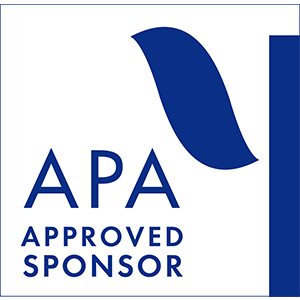

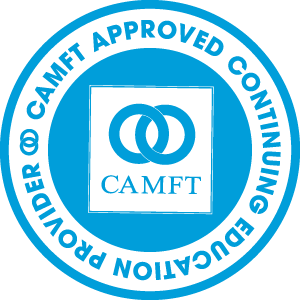

CNP’s mission is to pave the way for a nutritional component to mental healthcare by 2030. Join our mission!
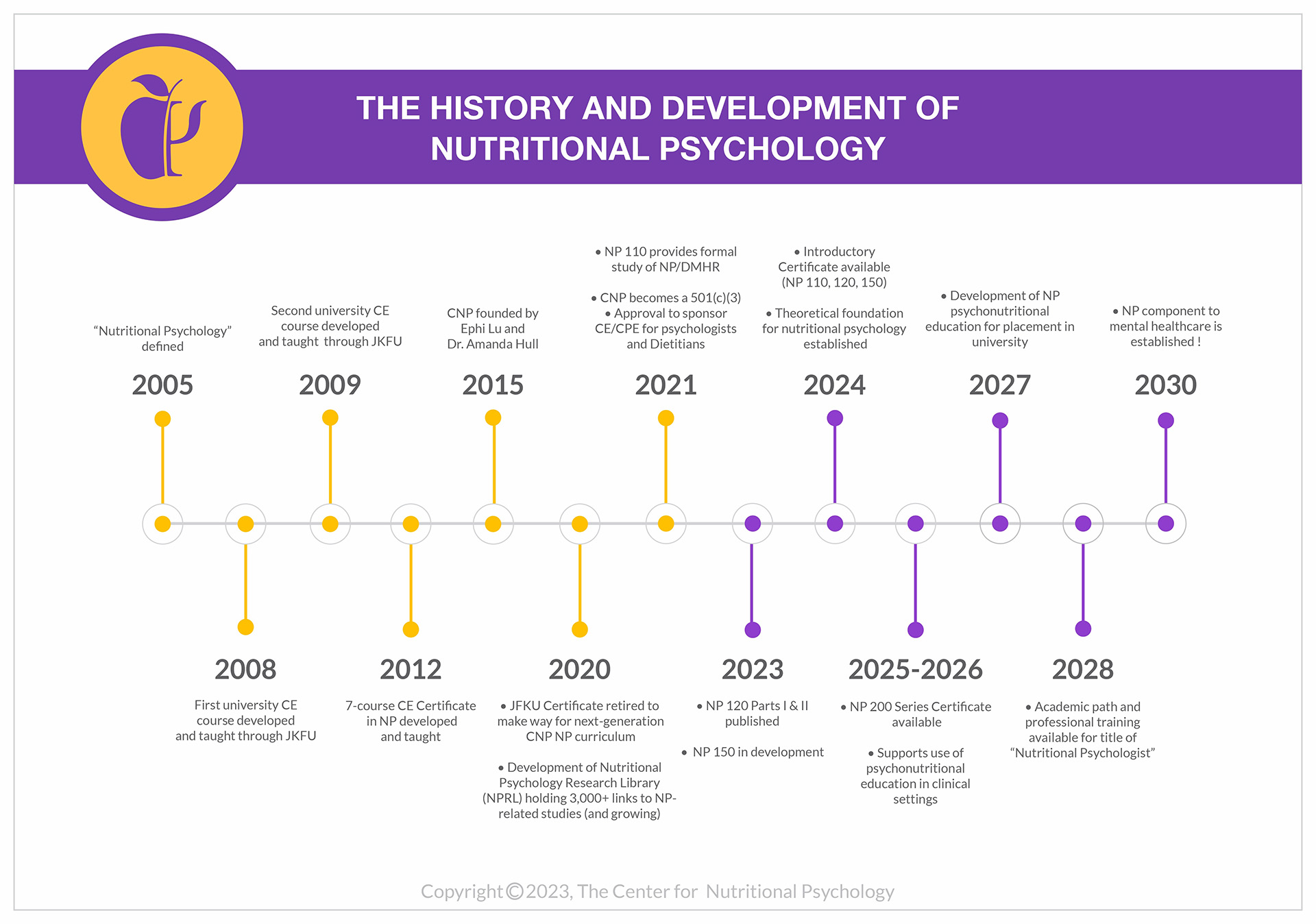

CNP is approved by the American Psychological Association (APA) to sponsor Continuing Education for Licensed Psychologists. CNP maintains responsibility for this program and its content.
CNP is approved by the Commission on Dietetic Registration (CDR) for licensed Dietitians to receive 18.25 CPEU through Activity Type 742 Eligible Enduring.
CNP is approved by the California Board of Behavioral Sciences (BBS) through the California Association of Marriage and Family Therapists (CAMFT Provider #1000102) to provide 18.25 CE for LMFTs, LCSWs, LPCCs, and/or LEPs.
Course Disclaimer
The information in this course is not meant to, nor should it ever be used, to treat, mitigate, or cure psychiatric illness. This information should never be used as a substitute for sound medical advice. This course is educational in nature and is designed to introduce professionals, students, and interested individuals in developing their understanding of the connection between diet and all aspects of psychological functioning and mental health. Best practices for how to integrate this information professionally, ethically, and within the standards of practice will be covered in upcoming courses. While this information can be incorporated into one’s practice within an educational framework, it cannot be used to provide dietary advice, any form of dietary intervention, or to treat any psychological or mental health issues.


